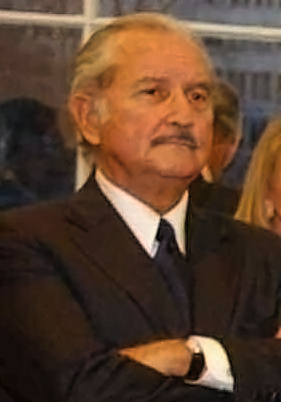By its very nature, the novel indicates that we are becoming. There is no final solution. There is no last word.

"Carlos Fuentes Macías" was a Mexican novelist and essayist. Among his works are The Death of Artemio Cruz (1962), Aura (Fuentes)/Aura (1962), Terra Nostra (novel)/Terra Nostra (1975), The Old Gringo (1985) and Christopher Unborn (1987). In his obituary, the New York Times described him as "one of the most admired writers in the Spanish-speaking world" and an important influence on the Latin American Boom, the "explosion of Latin American literature in the 1960s and '70s", while The Guardian called him "Mexico's most celebrated novelist". His many literary honors include the Miguel de Cervantes Prize as well as Mexico's highest award, the Belisario Domínguez Medal of Honor. He was often named as a likely candidate for the Nobel Prize in Literature, though he never won.
If you enjoy these quotes, be sure to check out other famous novelists! More Carlos Fuentes on Wikipedia.I don't think any good book is based on factual experience. Bad books are about things the writer already knew before he wrote them.
If the Soviet Union can give up the Brezhnev Doctrine for the Sinatra Doctrine, the United States can give up the James Monroe Doctrine for the Marilyn Monroe Doctrine: Let's all go to bed wearing the perfume we like best.
They were determined. I tell them that beam, more than anything, is just mental. It's just a matter of executing.
Perfect order is the forerunner of perfect horror.
I wrote it to show that not all mother-in-laws are bad.
Human kind will prevail. And it will prevail because, in spite of the reaction of history, novels tell that art restores right in us that was disregarded by history. History is being what was, then literature offers what history has not always been.
It was pretty impressive to score that high without our top individual. The rest of the girls really came through. I'm proud of them.
Religion is dogmatic. Politic is ideological. Reason must be logical, but literature has a privilege of being equivocal.
Copyright © 2024 Electric Goat Media. All Rights Reserved.